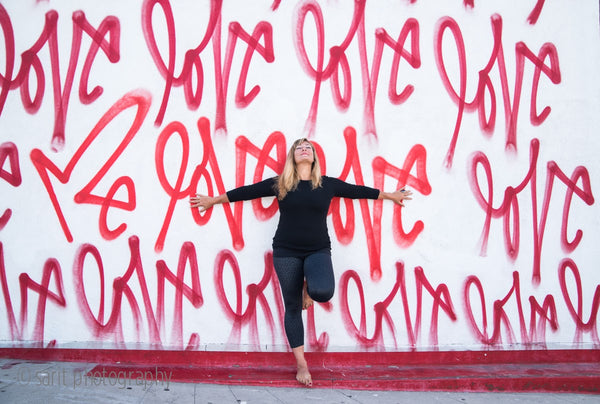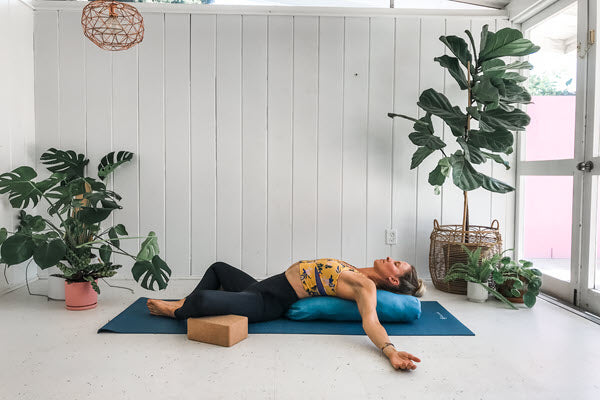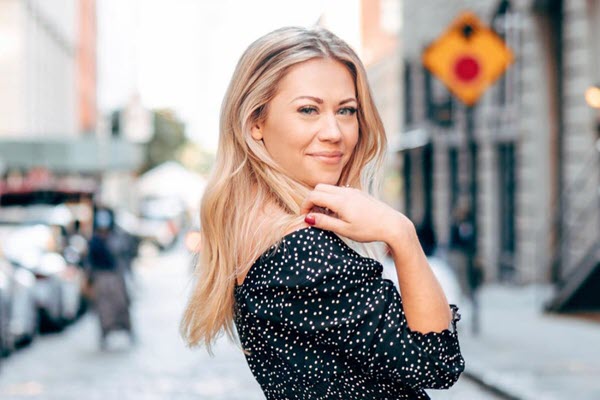Finding Peace
Exalted Warrior is a small organization, based out of a two-room yoga studio in downtown Tampa. The front of the building is unassuming—just a single-story concrete facade with room for maybe five cars to park in front. The interior is about what you’d expect too, from the hardwood floors to the stacks of bolsters and mats in various cubbies around the lobby. What happens in this building, though, is anything but ordinary.When Nick Caris first came to this studio, several years ago, he was angry. Nick had suffered a traumatic brain injury in Afghanistan, the result of a poorly-timed rocket blast, and had only returned from Afghanistan a few weeks prior. He wasn’t even in class voluntarily—his uncle had dragged him to his weekly Bikram session, hoping it would help him relax. “I remember the first time that Nick came into the studio,” recalls Annie, Exalted Warrior’s founder. “I could kind of tell that he wasn’t comfortable where he was, but he was hanging in there, doing the best he could.”

Nick’s story is, unfortunately, far from unique. Every week, Annie welcomes in dozens of combat veterans, from young men and women in their 20s, fresh off the plane from Iraq and Afghanistan, to Vietnam vets with greying beards and ailing joints that haven’t had a restful night in 40 years. Some have traumatic brain injuries, some are missing limbs, and some just feel out of place and ostracized in a culture they don’t recognize any more.Nick didn’t like the class, and he didn’t like Annie, but she wore him down. After his first class, she ran into him in a coffee shop just down the street and convinced him to come back to another class, and then another, week after week. Gradually, his defensive walls started to come down. “I didn’t have the awareness that I had changed, when it came to dealing with civilian life,” Nick explains. “The frustration was there—people didn’t understand, or they didn’t want to understand, or they assumed they knew and they didn’t, and I didn’t really know how to respond to a lot of that stuff. It’s really funny,” he adds with a smile, “when you start telling a story to somebody they would start to cry, and it was kind of like ‘well, I just don’t want to tell anybody anymore, ’cause then everybody’s going to keep crying and I don’t want to see anybody cry.’”

Yoga and meditation provide Nick an outlet that other people couldn’t. When the lights go down and his breathing slows, his past comes bubbling back to the surface. But in the calm and safety of the yoga studio, he doesn’t panic or shy away. He’s able to face his problems, acknowledge them, and move on. Nick now teaches for Exalted Warrior, as well as volunteering at the VA hospital just south of town. He’s calm and soft-spoken, happily discussing his past, his injury, and his journey to the man he is today. “It wasn’t until yoga and me finding true acceptance for what I did and letting all of those things go that I really noticed how far away we were, from military veteran to normal civilian.”At Veterans Alternative, based in the little town of Holiday, FL, they’re taking a different approach to that same transition. “It was very difficult to transition back into the civilian world,” says Gabriel Muñoz-Calene, a former Marine now working as an attorney. It’s hard for returning vets to find people they can relate to, from the life-changing experiences they’ve had to something as small as the swear words or three-letter acronyms that crept into their everyday vocabulary while they were on duty. Veterans Alternative offers them a return to that environment, giving returning vets the culture they’re used to without the trauma or stress of active duty. Vets can participate in military-style obstacle courses, weekly barbecues with their peers, hand-to-hand combat training, and interval-style workouts. Some described the exercise itself as a “moving meditation.”

Every day, though, everyone comes into the main room in Veterans Alternative’s little house and turns out the lights for iRest yoga. iRest Yoga Nidra, shortened from “integrative restoration,” is a practice developed over the last 26 years by Dr. Richard Miller, a clinical psychologist, author, researcher, and yogic scholar. The practice originates in meditative traditions dating back thousands of years, but Dr. Miller thought its spiritual component might seem inaccessible to a Western audience, so he adapted the practice to include more modern language.“What was interesting about it was that people don’t know how to meditate,” says Brian Anderson, cofounder of Veterans Alternative and a former Ranger himself. “So when you have a practice like iRest where you’re actually able to sit through a guided meditation and just let your mind be free to go where it needs to go, whatever it needs to go to, that day, that time and space, it’s absolutely amazing.” And it seems to be working. Forest Spall, an injured veteran from the area who comes to practice yoga and meditate at least once a week, says that an iRest session, even if it’s only 15 minutes, relaxes him as well as a two-hour nap.

And Janel Norton, Brian’s co-founder and a former combat photographer with the Air Force, can hardly believe the results herself. She leads the meditation sessions in Veterans Alternative’s main room, a pre-fab building with screen doors and the occasional rattle from an air conditioner. She reads from a well-worn paperback iRest book in a calm, slow voice, reading glasses balanced on her nose, with a dozen veterans of various ages and experience levels laid out on blankets and bolsters around her. Some can’t lie on the floor due to stiffness or injury, so they sit in reclining chairs around the edge of the room. Some have service dogs that lie next to them, resting their noses on their owners’ hands. Some of them even begin to snore as the session goes on. “Since I started using it,” Janel says, “I can’t believe the effects that I’m hearing it has on people. It amazes me.”

There are almost 22 million veterans living in the United States. These men and women often feel ostracized, misunderstood, and even shunned by the people around them. Many of them have physical or mental injuries. And according to NPR, growing numbers of them are becoming addicted to painkillers prescribed to them by the Department of Veterans Affairs.Veterans Alternative and Exalted Warrior are not alone. They’re part of a growing movement, seeking to use interpersonal contact and mental training to help veterans, whether they’re fresh out of the service or have been struggling with inner demons for decades. “In less than a year, we’ve had over a hundred veterans come through our doors,” says Brian. “They’re coming from other states, other organizations are sending their warriors to us, and they’re loving every aspect of it.”
Meditation and yoga offer them a non-pharmaceutical alternative to treat what ails them—and a better one, according to Nick Caris, who says that yoga and meditation have helped him more than any medicinal approach ever did. “It was a huge deal to finally find some relaxation,” he says, a smile emerging on his face. Everyone involved with these organizations is as passionate about their work as Nick is. “My favorite part is just knowing that I’m giving these guys something they can take with them that they can use to help them stay focused and calm,” says Janel. “I’m giving them a piece back that maybe they lost.”
1 Response
Leave a comment
Comments will be approved before showing up.
Also in Blog

Body Peace & Personal Empowerment

Yoga for Swimmers: Poses for Strength and Mobility


Megan
December 30, 2017
This just made my entire day. Wow! Amazing these places exist. So inspiring